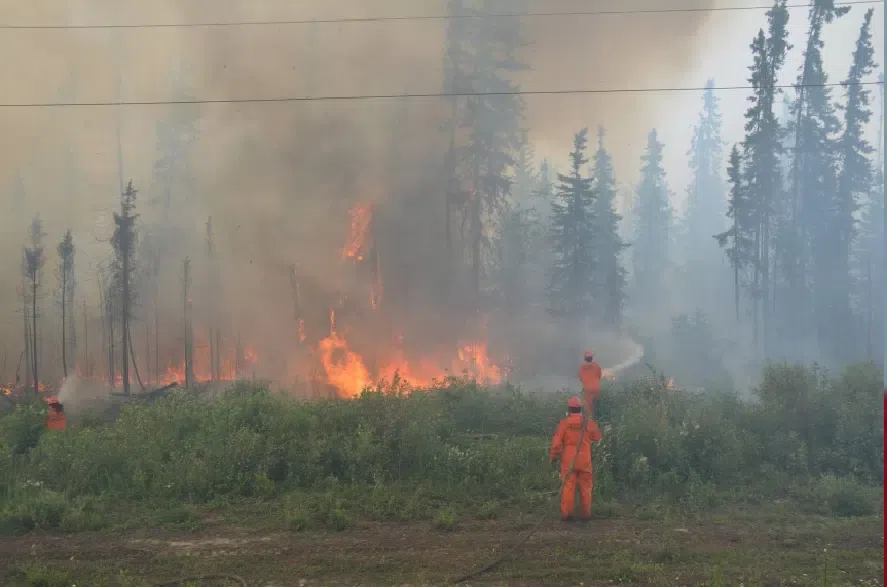We are officially back in wildfire season, and with the warm temperatures creating dry conditions for parts of the country, there’s a good chance we’ll see some more wildfire smoke before the summer’s through. But that raises the question…
How can wildfire smoke affect my health?
Jaimie Peters is a certified respiratory educator, she said the smoke can affect people differently.
“We need to pay attention to our environment around us at all times because those health effects from wildfire smoke can really range from mild to severe; they can be life-threatening at times, so we want people to take appropriate measures to protect their lungs,” said Peters.
For the average person, the symptoms from breathing in smoke can feel like a flare-up of allergies, such as irritated eyes, a running nose, and headaches.
How can I know if I’m considered high-risk?
Someone suffering from a type of lung disease is immediately higher up on the caution scale compared to the average person. Peters said that those aren’t the only people at risk.
“Children are at more risk because their lungs are smaller, they’re still developing, and they are breathing more frequently than we are, so it can cause increased symptoms for them and irritate their lungs as well,” said Peters.
How can I keep myself and my family safe when there is heavy smoke in the area?
“We encourage people to stay indoors as much as possible or in their vehicles with their air conditioners on to recirculate to prevent outside air from coming in, but for those people that can’t go inside, it’s tough, said Peters. “You can try wearing an N95 mask or a respirator that’s well fitted that could decrease those large particles from getting in, but the smaller ones you can’t fully prevent.”
Can wildfire smoke be fatal?
Peters said that if you have a serious enough disease and are getting too much smoke exposure, it can be.
“They can start having increased shortness of breath, an increased cough, and more mucus; this can cause them to have more rapid breathing, struggle to get enough air into their lungs, and find it hard to speak. If it gets to that point, you need to go and see the nearest urgent care centre or emergency centre,” said Peters.
To check if the smoke is bad in your area, you can check Environment Canada’s air quality index. It is a summary of the most recent forecast values for air quality in most Canadian cities. The scale ranges from one to 10, with one representing low risk and 10 signifying very high risk.
Some precautions you can take to keep yourself and your family safe are, limiting your time outdoors when indoors keeping windows and doors closed as much as possible, using good quality air filters in your ventilation systems or a portable air purifier, and if you must spend time outdoors use an N95 mask or well-fitting respirator.











